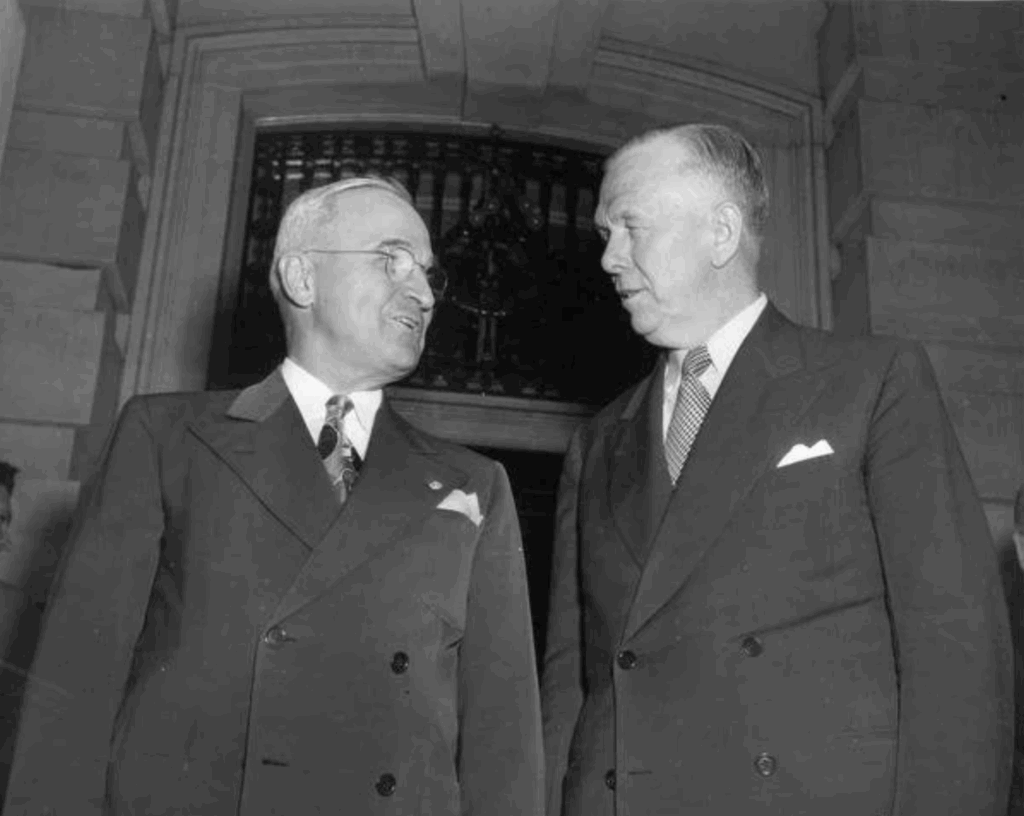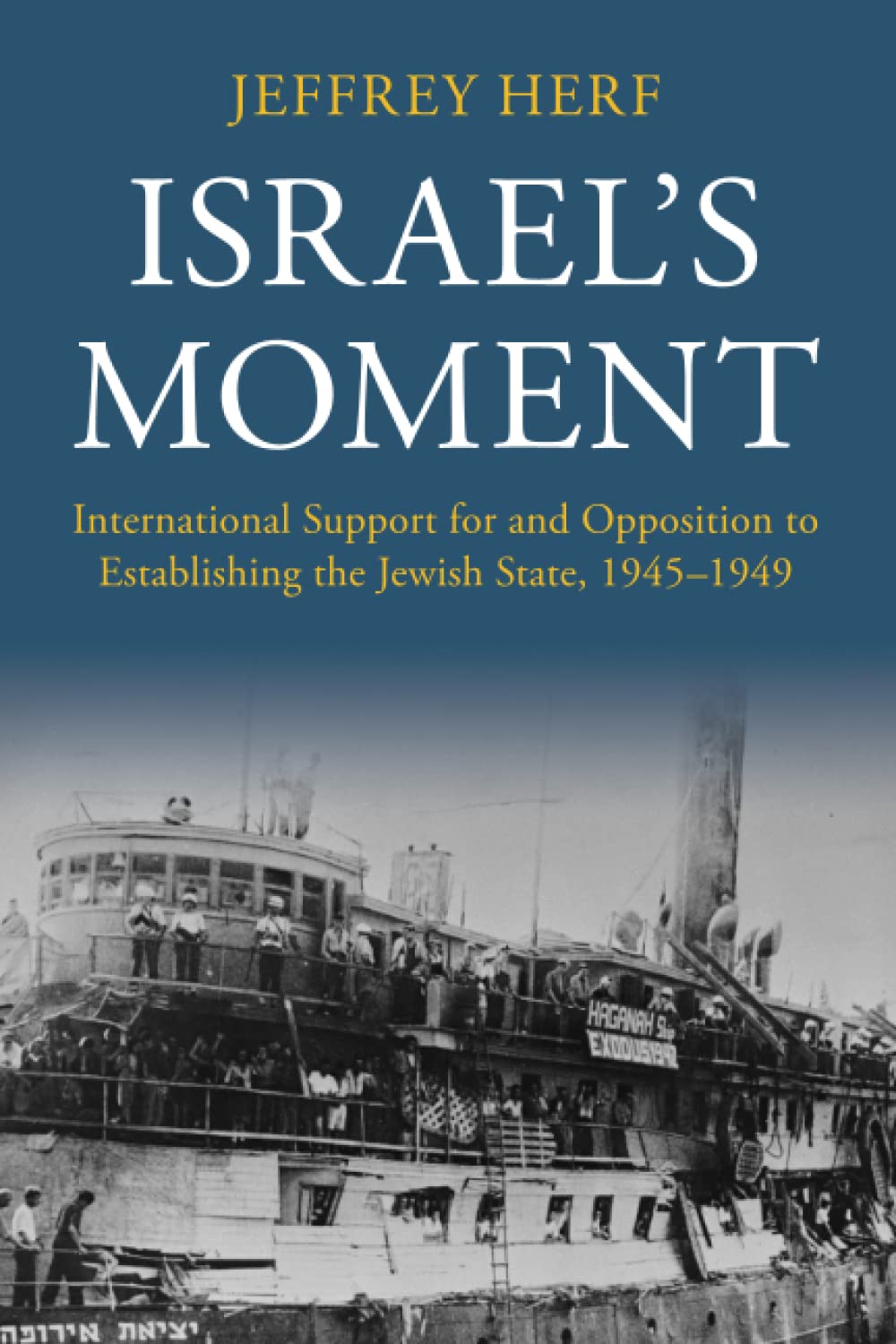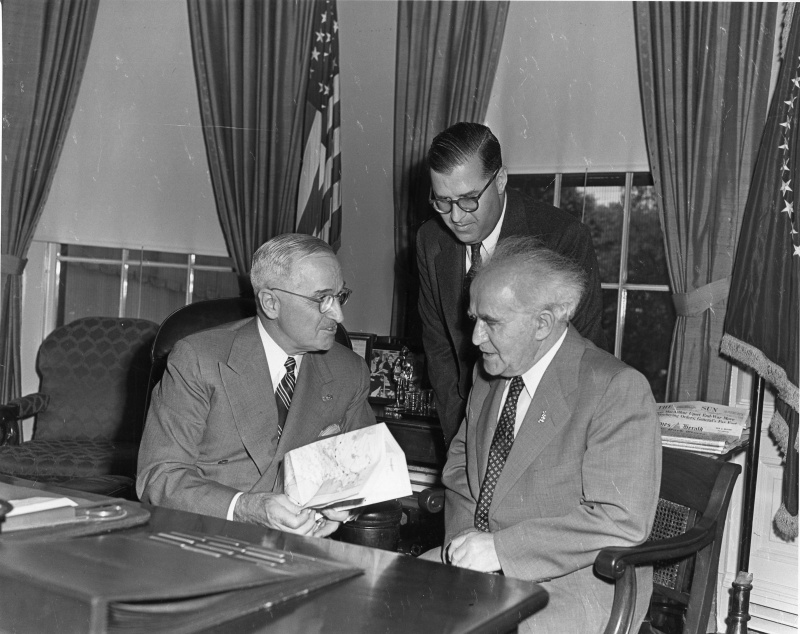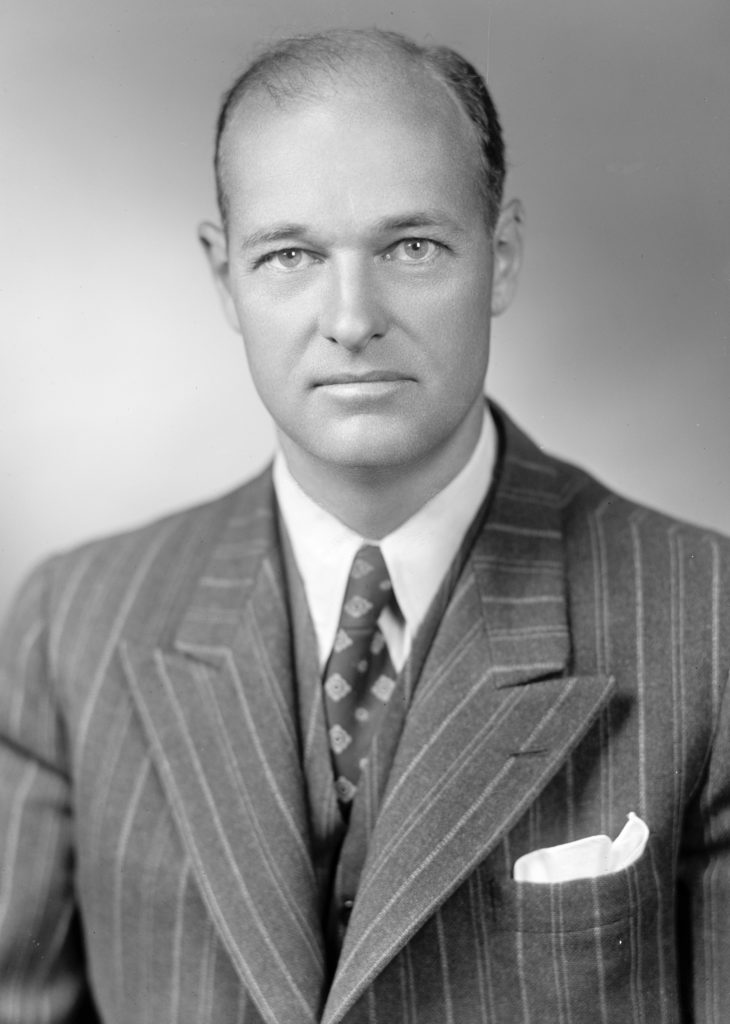Australia/Israel Review
Biblio File: Was Israel an “Imperialist” creation?
Sep 19, 2025 | Paul Monk

Stunning archival findings put current controversies in perspective
 Israel’s Moment: International Support for and Opposition to Establishing the Jewish State, 1945-1949
Israel’s Moment: International Support for and Opposition to Establishing the Jewish State, 1945-1949
Jeffrey Herf
Cambridge University Press, 2022-23, 500 pp.
This book is a superb piece of historical research. It ought to have been required reading for anyone reacting to the Hamas atrocities of October 7, 2023 or claiming to put the subsequent war in perspective. The ‘Leftist’ denunciations of Israel and calls for ‘Palestine’ to be “free from the river to the sea” are founded on falsity and antisemitism. This book is a much-needed, closely documented corrective to such vicious nonsense.
In a letter to the editors of the Jewish quarterly SAPIR, dated August 19, 2022, Professor Herf deplored the prevalence of antisemitism and anti-Zionism even among Jewish scholars in the United States. He wrote:
The propaganda assault of the last half-century on Israel and Zionism, which spread the falsehoods that Zionism was a form of racism, and that Israel was a settler-colonial state founded in a war of expulsion, has had an impact on the academy.
His vastly illuminating and liberating book is a must-read in this context. Herf, now 78-years-old, has long been a fine historian. With this book, he excels himself and vindicates the vocation of historian.
The range of his primary research, in American, European and Middle Eastern sources and archives, is immensely impressive. We get an integrated and detailed coverage of American, British, French, German, Russian, Czech, Arab and Israeli archives and memoirs. Only a lifetime of serious language learning and familiarisation with archives could yield so rich a cross-examination of what diplomats, generals, statesmen and activists were thinking and doing a lifetime ago.
He minutely covers the absolutely foundational realities that both the British Foreign Office and the American national security establishment (the State Department, the Pentagon and the CIA) were opposed to the partition of British Mandatory Palestine and to the creation of a Jewish state and attempted to prevent such an outcome between 1947 and 1949. Given the endless claims that Israel is an imperialist venture and a “settler colonial” society without legitimacy, this detailed dissection of the Anglo-American position is devastating.

President Harry S. Truman (left) meets with Israeli Prime Minister David Ben-Gurion (right) and Israeli Ambassador Abba Eban (standing) in a gift ceremony in the Oval Office (Image: Wikimedia Commons)
Herf shows that the calculation, in both London and Washington, was that Middle Eastern oil was crucial to the economic future of the West; that access to it required coddling reactionary and backward Arab potentates; and that the Soviet Union was seeking to facilitate the creation of a pro-Soviet state in Palestine, by infiltrating into it thousands of ‘communist’ Jews from Eastern Europe. He also shows that there was no appreciable concern for the fate of the Jews or mention of the Holocaust in the British or American foreign policy establishments.
They connived in refusing to arrest or prosecute the egregiously antisemitic and pro-Holocaust Grand Mufti of Jerusalem, Haj Amin al-Husseini, and allowed him to return to the Middle East, as an agent of anti-Zionist and antisemitic agitation. The implications of this were and remain disturbing.
Long an admirer of US Secretary of State George Marshall and the US State Department’s George F. Kennan, I found myself stunned by the overwhelming evidence that they worked and thought on all these lines. Herf closely documents how the British Labour Government led by Clement Attlee sought to cut off Jewish immigration to Palestine, armed the Arab states and connived in their blatant attempt to destroy the nascent State of Israel in 1948. Meanwhile, Marshall arranged an arms embargo that was plainly tilted against Israel. Only Czech arms, supplied at Stalin’s instigation, enabled the micro-state of Israel to survive the Arab onslaught, under the leadership of the country’s first prime minister, David Ben-Gurion
The single most stunning aspect of Herf’s book is his meticulous demonstration that, in 1947-49, the Left – in both the United States and Western Europe, not least in France – passionately supported the Zionist project and helped Israel in any way it could. The Soviet Foreign Minister, Andrei Gromyko, excelled himself at the United Nations in denouncing the Anglo-American machinations against Israel and their underlying geopolitical purpose of keeping the British Empire in place in the Middle East.
This history has long been buried – supplanted with an ignorant Cold War consensus that Israel was itself an Anglo-American imperial project directed against the Muslim Arab world. Nothing could be further from the truth. The astonishing thing is that Ben-Gurion’s heroes were able, against all the odds, to establish an effective state apparatus, import and make highly effective use of Czech arms (the nature and quantities of which Herf tabulates) and withstand the relentless and mendacious pressure put on them by London and Washington.
Not the least striking feature of the study is the very clear evidence that US President Harry Truman’s pro-Zionist views were overridden by the State Department and the Pentagon and that he clashed head on with Marshall over the matter of Israel. So striking is Marshall’s intractable position in the matter that one is left to puzzle over the coherence of his overall worldview.
In Europe, he was seized of the danger of communism and sponsored the famous Marshall Plan. In China, he laboured to get Chiang Kai-shek’s Nationalist government to come to terms with Mao Zedong’s communist insurgency. In the Middle East, he cold-bloodedly sought to smother Israel and to back the Arabs and the British Empire for the sake of future oil supplies. The first policy was visionary, the second myopic, the third ruthlessly Machiavellian.
Herf shows that the US government, as well as public opinion, was deeply divided over Middle East policy. The Truman White House, the Treasury Department and the Department of Justice were lined up against the State Department, the Pentagon and the CIA. Each acted according to its lights, not in coordination. The same, he shows, was the case in France, with the Ministry of the Interior defying the Foreign Ministry on Jewish emigration from Europe into Palestine and also arms smuggling to the Zionists.
This tension, illustrated in the minute examination of long classified cables and memoranda, is fine-grained historical inquiry at its best. One of many high points in the book is Herf’s ninth chapter, “The US State Department Policy Planning Staff Memos Oppose the UN Partition Resolution: January-February 1948.” The pivotal role of the State Department’s George Kennan is here highlighted. Herf shows how Kennan’s judgement was shaped by the Arab and oil lobby and, in turn, became foundational to State Department obstruction of Truman’s pro-Partition position.
The key paragraph reads:
In a series of memoranda prepared early in 1948, George Kennan, the director of the Policy Planning Staff in the State Department, made the case that the Zionist project was irreconcilable with the policy of containment of communism. He did so with the same eloquence and analytical clarity that had earlier brought him renown. Since writing the ‘Long Telegram’ of February 22 1946, Kennan had emerged as the intellectual architect of American global strategy in the emerging confrontation with the Soviet Union and communism. That, plus his association with Secretary of State Marshall, and his leadership of the Policy Planning Staff, meant that his views both mirrored and shaped a consensus that influenced the US national security establishment as a whole. Kennan and his staff did not invent that consensus; his accomplishment was to extend it beyond the anti-Zionists among the Arab specialists in the State Department, the CIA and the military and connect it to the core strategic policy of the United States in Europe and around the globe in the first years of the Cold War.

Renowned US State Department offical George Kennan was part of the Washington consensus that rejected Israel’s creation and took the Arab side (Image: Wikipedia)
Truman had, on Dec. 1, 1947, in the immediate wake of the UN vote on the partition of Palestine, called for a review of America’s Middle East policy. Kennan drafted his memoranda on that basis. In doing so, he was strongly influenced by the lobbying of one William Eddy, a former State Department official who had moved to work for the Arab-American Oil Corporation (ARAMCO). Eddy argued that the Arabs would never accept a Jewish state and that a pro-Zionist American policy would alienate the Arab world, with adverse consequences for ARAMCO.
Herf then shows in detail how, from that point on, settled State Department policy was to work with London to obstruct Jewish immigration, deny arms to the Zionists, turn a blind eye to Arab aggression and then, under the Bernadotte Plan of July 1948, seek to reward Arab aggression by demanding that Israel give up the Negev (and the port of Haifa), constituting 60% of the territory allotted to it under the UN partition plan.
Under the scheme of the first UN mediator for the Arab-Israeli conflict, Swedish diplomat Count Folke Bernadotte, Britain would come to control the Negev, via its Hashemite puppet state of Transjordan. Meanwhile, though the Arab states refused to engage in peace negotiations, Washington and London pressed Ben-Gurion to allow Arab refugees from the Israeli territories to return to their homes.
Israel was in no sense an Anglo-American conspiracy against the Muslim Arab world. Ben-Gurion’s Israel was fully within its rights, under the UN mandate and international law, to defend itself as it did, to refuse the “right of return” and to insist that its statehood be acknowledged by the Arab world. On May 20, 1948, Florimund Bonte, a member of the Central Committee of the French Communist Party, declared in the French National Assembly:
We cannot forget that on the territory of Europe dominated by Hitlerism, half of the Jewish population has been exterminated and that for three years millions of human beings have been reduced to scraps of emaciated skin. We must pay tribute to those who fought alongside us during the war for liberation of all peoples… from the barbaric philosophy of Hitlerism. It was from their attitude that the possibility of the creation of the Jewish state was born.
Yet for decades now a fascistic pseudo-Leftist antisemitism has called for the destruction of Israel as a tainted product of British and American imperialism. Herf has now corrected the record.
Dr Paul Monk is a former senior intelligence analyst and long-time consultant in applied cognitive science. He is the author of a dozen books, including The West in a Nutshell: Foundations, Fragilities, Futures (2009) and Dictators and Dangerous Ideas (2018).
Tags: Israel, Palestinians, United Nations, United States






